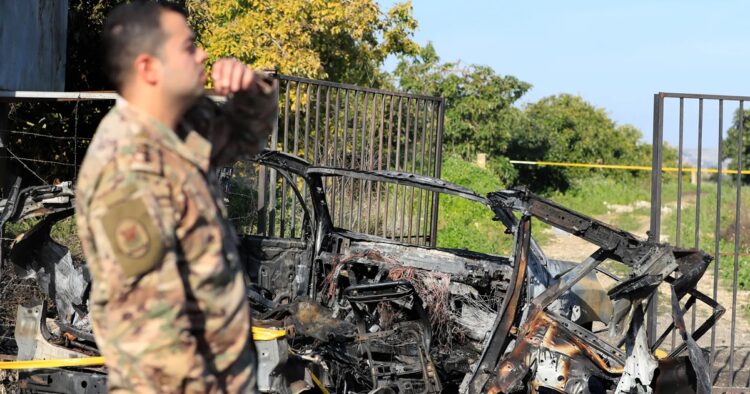On Sunday, an Israeli airstrike targeted two vehicles near a Lebanese army checkpoint in south Lebanon, leading to casualties, as reported by Lebanese state media and health officials. The strike is seen as part of a shift in Israeli strategy towards targeted killings in Lebanon, following months of clashes with Hezbollah militants on the border amid the ongoing conflict in Gaza.
One of the vehicles was carrying a Hezbollah member, Fadel Shaar, who was killed in the town of Kafra. Another vehicle, carrying civilian Samar al-Sayyed Mohammed, was also struck, resulting in her death. Several others were wounded in the attack.
Escalation of Tensions and Change in Israeli Tactics
The Israeli military did not provide official comments on the airstrike. Recent weeks have witnessed a change in Israel’s strategy, moving towards targeted killings of figures associated with Hezbollah and allied groups. This shift includes strikes in areas farther from the border, as evidenced by the recent incidents.
On the previous day, a strike near Tyre claimed the lives of two individuals, including a Hezbollah commander. This follows a pattern of targeted actions, including the killing of a top Hamas official in Beirut on January 2, marking the first such strike in the capital since the 2006 Israel-Hezbollah war.
Hezbollah’s Response and Regional Concerns
Hezbollah, in response to the strike in Kafra, declared an attack on the town of Avivim in northern Israel. The group stated that this retaliation was in response to the Kafra strike and other attacks on Lebanese villages and civilians. Israel confirmed strikes on Hezbollah targets in Lebanon but reported no injuries after an anti-tank missile hit a house in Avivim.
As regional tensions escalate on multiple fronts, officials from the United States and Europe have engaged in shuttle diplomacy between Israel and Lebanon. The goal is to prevent an escalation of the conflict into a full-scale war on the Lebanese front, emphasizing the potential dangers of a wider regional conflict.
International Diplomacy Amid Rising Risks
With the risk of a broader conflict looming, diplomatic efforts have intensified, with representatives from the United States and Europe engaging in shuttle diplomacy between Israel and Lebanon. The aim is to prevent a further escalation of the conflict, particularly into a full-scale war on the Lebanese front. The recent airstrikes and retaliatory actions underscore the challenges in maintaining regional stability amid ongoing conflicts.

















Comments